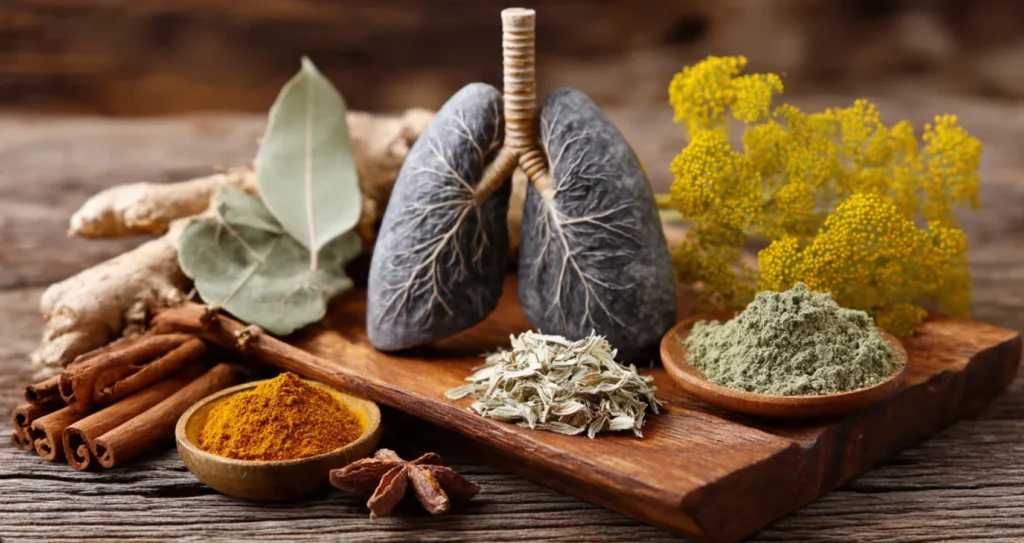Ayurveda treats sinusitis by addressing its root causes and symptoms. It recognizes that inflammation results from imbalances, especially excess Kapha. Symptoms include nasal congestion, headaches, and thick discharge. Ayurvedic solutions involve dietary changes, herbal remedies like turmeric and ginger, and detoxification methods such as Nasya. Natural treatments like steam inhalation and nasal irrigation with saline also help. Lifestyle adjustments, including hydration and yoga, support sinus health. Discover more holistic approaches to enhance well-being. To experience a full-spectrum recovery, visiting a certified ayurvedic clinic in Bangalore ensures guided care and holistic results.
Understanding Sinusitis: Causes and Triggers
Sinusitis, an inflammation of the sinus cavities, can arise from various causes and triggers. This condition often stems from infections, allergens, or anatomical abnormalities. Viral infections, such as the common cold, can lead to sinus swelling, while bacterial or fungal infections may exacerbate inflammation. Environmental factors, including air pollution and exposure to irritants, have also been identified as significant contributors. Additionally, individuals with allergies may experience sinusitis episodes triggered by pollen, dust, or cold. Anatomical issues, like a deviated septum or nasal polyps, can further complicate airflow and drainage, increasing susceptibility. Understanding these multifaceted origins is essential for developing innovative treatment approaches and holistic strategies to manage sinusitis effectively, paving the way for advancements in both conventional and alternative therapies. Those experiencing recurring symptoms often seek guidance from Ayurvedic sinus specialist in bangalore, who assess individual constitution and lifestyle to offer lasting solutions.
Recognizing the Symptoms of Sinusitis
How can one identify the symptoms of sinusitis? The condition often manifests through a variety of distinct signs. Individuals may experience persistent nasal congestion, leading to difficulty in breathing and an impaired sense of smell. Accompanying this congestion, thick, discolored nasal discharge might occur, indicating potential infection. Headaches and facial pain, especially around the forehead, cheeks, and eyes, are common as sinus pressure builds up. Additionally, a cough, fatigue, and fever may present themselves as the body attempts to combat inflammation. Recognizing these symptoms early can be essential for effective management. By paying attention to these indicators, individuals can take proactive steps toward addressing their sinus health, paving the way for a more innovative approach to treatment. Ayurvedic experts offering ayurvedic treatment for sinus problems in Bangalore help identify these patterns early, often preventing long-term discomfort through preventive and corrective measures.
Ayurvedic Principles for Treating Sinusitis
Ayurveda offers a holistic approach to treating sinusitis by focusing on balancing the body’s doshas—Vata, Pitta, and Kapha. According to Ayurvedic principles, sinusitis often arises from an imbalance, particularly an excess of Kapha, which can lead to congestion and inflammation. Treatment emphasizes the importance of identifying the root cause and tailoring interventions to restore harmony. Techniques may include dietary adjustments to reduce Kapha, herbal formulations to enhance respiratory function, and lifestyle practices that promote overall wellness. Additionally, Ayurveda highlights the significance of detoxification through methods like Nasya, which involves nasal administration of herbal oils. By fostering a synergistic balance within the body, Ayurveda aims to alleviate sinusitis symptoms and enhance long-term health. Many individuals turn to Kerala Ayurvedic sinusitis treatment in Bangalore, where personalized therapies like Nasya are performed under expert supervision.
Natural Remedies and Treatments in Ayurveda
A variety of natural remedies and treatments are available within Ayurvedic practice to effectively manage sinusitis symptoms. Key among these is the use of herbal formulations, such as turmeric and ginger, known for their anti-inflammatory properties. Nasal irrigation with warm saline infused with essential oils can also promote sinus drainage and alleviate congestion. Furthermore, steam inhalation with eucalyptus or peppermint oil serves to soothe inflamed mucous membranes. Ayurvedic practitioners may recommend specific dietary adjustments, emphasizing warm, cooked foods that bolster digestion and reduce excess mucus. Experts offering ayurvedic medicine for sinusitis in bangalore may prescribe custom decoctions or tablets based on doshic analysis. Additional therapies, including Panchakarma detoxification, can enhance overall respiratory health. These innovative approaches highlight Ayurveda’s holistic perspective, prioritizing the body’s natural healing capabilities while addressing the root causes of sinusitis.
Lifestyle Adjustments for Sinus Health
While addressing sinus health through Ayurveda, individuals can make several lifestyle adjustments that considerably enhance their well-being. Emphasizing a balanced diet rich in anti-inflammatory foods, such as turmeric and ginger, can support sinus function. Regular hydration is essential, promoting mucosal health and reducing congestion. Incorporating daily practices like yoga and pranayama (breath control) fosters respiratory strength and encourages sinus drainage. Additionally, maintaining ideal humidity levels within living spaces can prevent dryness, easing sinus discomfort. Limiting exposure to allergens and pollutants further helps protect sinus integrity. Finally, a consistent sleep schedule aids in overall health, allowing the body to restore and rejuvenate. By integrating these innovative practices, one can effectively support sinus health within an Ayurvedic framework.
Frequently Asked Questions
1. Can Sinusitis Be Chronic or Only Acute in Ayurveda?
The question of whether sinusitis can be chronic or only acute in Ayurveda invites a deeper exploration of the condition’s complexity. Ayurveda recognizes both acute and chronic forms of sinusitis, each characterized by distinct dosha imbalances. Chronic sinusitis, often stemming from prolonged imbalances, may require a more thorough approach, incorporating dietary adjustments, herbal remedies, and lifestyle changes. This dual perspective emphasizes the need for personalized treatment strategies that align with individual health profiles.
2. How Long Does It Take for Ayurvedic Treatments to Show Results?
The duration for Ayurvedic treatments to demonstrate effectiveness can vary greatly among individuals. Factors such as the severity of the condition, the specific treatment regimen, and the person’s overall health play essential roles. Generally, some may experience improvements within a few weeks, while others might require several months for noticeable results. This holistic approach emphasizes patience and consistency, aligning the body’s natural healing processes with tailored therapies for best outcomes.
3. Are There Any Dietary Restrictions During Sinusitis Treatment?
During sinusitis treatment, certain dietary restrictions may be advised to enhance recovery. This can include avoiding dairy products, which are believed to contribute to mucus production, and minimizing processed foods high in sugar and unhealthy fats. Incorporating warm, nourishing foods, such as soups and herbal teas, can support the healing process. Staying hydrated is also essential, as it aids in mucus clearance and overall respiratory health. These dietary adjustments aim to optimize wellness during treatment.
4. Is Yoga Beneficial for Alleviating Sinusitis Symptoms?
The question of whether yoga can alleviate sinusitis symptoms invites exploration into the therapeutic potential of this ancient practice. Research suggests that specific yoga postures and breathing techniques may promote nasal drainage, reduce inflammation, and enhance overall respiratory function. Additionally, mindfulness aspects of yoga can help manage stress, which may further benefit those experiencing sinus issues. Consequently, integrating yoga into a wellness routine could offer a holistic approach to managing sinusitis symptoms effectively.
5. Can Sinusitis Lead to Other Health Issues if Untreated?
Sinusitis, if left untreated, can indeed lead to various health complications. The inflammation and blockage of the sinuses may result in chronic infections, affecting the respiratory system. Additionally, untreated sinusitis can contribute to conditions such as asthma exacerbations, ear infections or even meningitis in severe cases. This interconnectedness highlights the importance of addressing sinusitis promptly to prevent a cascade of potential health issues, fostering innovation in treatment approaches and preventative measures.












